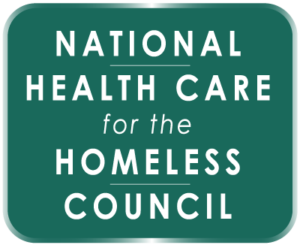Julia Dobbins is the Director of Programs and Services for NIMRC.
The National Institute for Medical Respite Care is an initiative 20 years in the making. The first national convening of medical respite providers occurred in Chicago in 2000 and a few years later the Respite Care Providers’ Network was created. Since then, over 100 communities have seen the need for medical respite care and developed programs. Many of those communities reached out to the Council for resources and support in this work. In any given week, I’ll speak to a social worker in Tulsa, OK, a pastor in Shreveport, LA, a nurse in Las Vegas, NV, and a community organizer in Philadelphia, PA, all about the need for more medical respite beds in their community and how to make that happen.
The National Institute for Medical Respite Care is an initiative 20 years in the making. The first national convening of medical respite providers occurred in Chicago in 2000 and a few years later the Respite Care Providers’ Network was created. Since then, over 100 communities have seen the need for medical respite care and developed programs. Many of those communities reached out to the Council for resources and support in this work. In any given week, I’ll speak to a social worker in Tulsa, OK, a pastor in Shreveport, LA, a nurse in Las Vegas, NV, and a community organizer in Philadelphia, PA, all about the need for more medical respite beds in their community and how to make that happen.
We know that medical respite care disrupts the cycle homelessness and connects our most vulnerable with the support and care they need and deserve. I’ve seen the long term impact a medical respite stay can have on someone’s life. Providing a safe place for people to be when they are sick or hurt is imperative to our collective humanity. Until we eradicate homelessness from this country, NIMRC will be here to ensure that people without homes have a place to heal and recover, and that our communities have the training, resources, and support to build these programs.
Research
NIMRC will identify high priority questions in order to expand qualitative and quantitative research into issues of medical respite care of particular value to programs, payers and providers. It is expected that key research foci will center on cost and utilization, program evaluation and systems research. In strategic partnerships with academic researchers and community collaborations, NIMRC will examine data trends to inform training and technical assistance, support cross-system approaches to data-sharing and utilization and to foster consumer-involved, community-based research.
Policy
The success of medical respite care programs depends on strong public policy support. NIMRC has a dedicated policy focus that examines how legislative and administrative policies can further promote effective programs. NIMRC will focus on the role of state- and federal-level Medicaid policies, managed care organizations, health centers, health providers, HUD funding and other stakeholders and how these entities develop and sustain high quality medical respite care services.
Training & Technical Assistance
The mission of NIMRC is to expand medical respite care and robust training and technical assistance services are integral to achieving that mission. NIMRC is home to state of the field resources and educational materials on developing and implementing medical respite services. Additionally, NIMRC staff regularly connect with medical respite providers nationwide to stay informed about the needs in the field. NIMRC will grow our already rich training and technical assistance services to do more outreach and education to potential funders and stakeholders and to help communities stand up their medical respite programs more efficiently.

